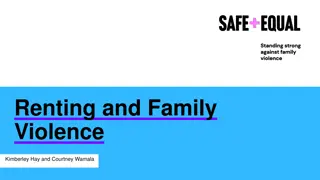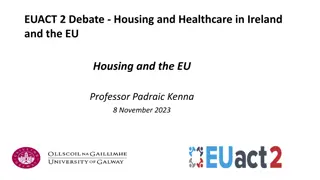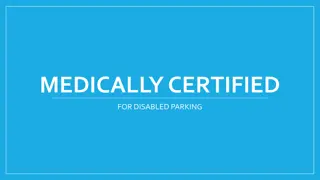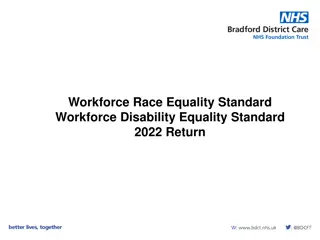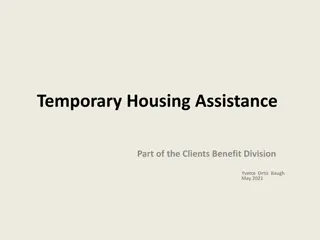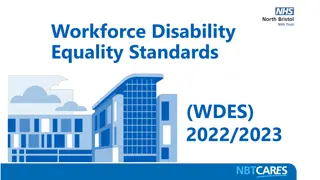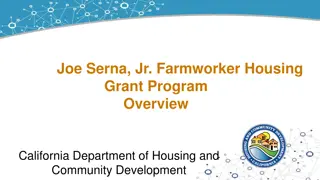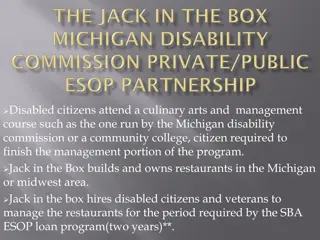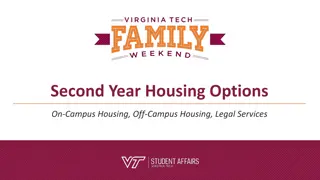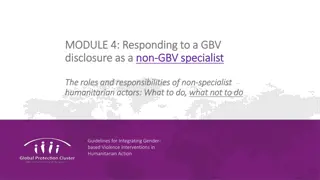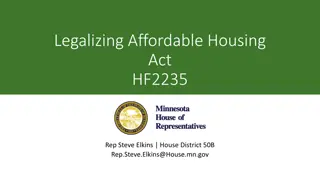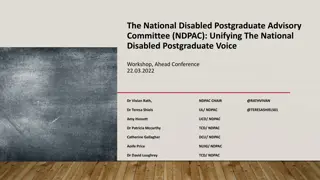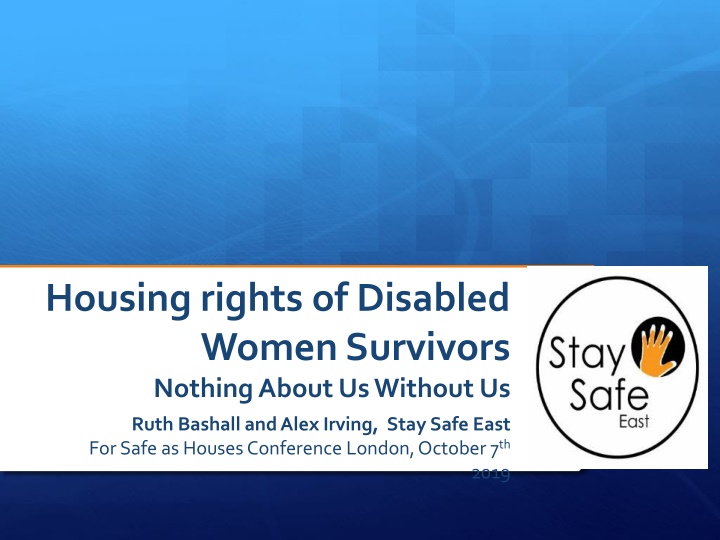
Housing Rights of Disabled Women Survivors - Stay Safe East Conference Insights
Explore the challenges faced by disabled women survivors in accessing safe housing, as discussed at the Stay Safe East conference. From high risks of violence to barriers in seeking support, learn about the crucial need for inclusive and supportive housing solutions in this insightful discussion.
Download Presentation

Please find below an Image/Link to download the presentation.
The content on the website is provided AS IS for your information and personal use only. It may not be sold, licensed, or shared on other websites without obtaining consent from the author. If you encounter any issues during the download, it is possible that the publisher has removed the file from their server.
You are allowed to download the files provided on this website for personal or commercial use, subject to the condition that they are used lawfully. All files are the property of their respective owners.
The content on the website is provided AS IS for your information and personal use only. It may not be sold, licensed, or shared on other websites without obtaining consent from the author.
E N D
Presentation Transcript
Housing rights of Disabled Women Survivors Nothing About Us Without Us Ruth Bashall and Alex Irving, Stay Safe East For Safe as Houses Conference London, October 7th 2019
Stay Safe East Tackling sexual and domestic violence, hate crime and other human rights abuse against disabled people The only disabled-led organisation working across all areas of abuse A feminist, social model and intersectional perspective Human rights based advocacy and long-term, holistic support for survivors Peer support and befriending Working for change: policy and campaigning at London and national level Training, consultancy, casework advice
A context of violence against disabled women and girls 50% of disabled women have experienced violence in their lives, 33% of non-disabled women Disabled women are at least 2-3 times more likely to experience domestic abuse that non-disabled women and up to 5 times more likely to experience sexual violence Violence and abuse from partners, family members, paid or unpaid carers at home, forced marriage, sexual exploitation, cuckooing, trafficking Sexual and physical violence in care and institutional settings: by paid or unpaid carers , fellow residents, staff members, volunteers etc in day centres, group homes, residential homes, mental health units etc
Barriers to safe housing for disabled survivors: Housing eligibility Burden of proof on survivors to prove they are more vulnerable than the average person who is street homeless . Gender and disability risks not recognised Housing authorities fail to take account of disability as a vulnerability factor: Risks not recognised especially for women with learning difficulties or cognitive impairments, mental health issues, are neuro-diverse or have non-visible impairments Coercive control of disabled women poorly understood and not seen as high risk by police or housing; disabled women least likely to report DV or SV to the police, in part due to barriers and disbelief Assumptions that younger disabled women will return to their family Women with high support needs seen as responsibility of adult social care institutionalisation? Disabled women blamed for their own abuse e.g. cuckooing and sexual exploitation- seen as unable to manage a tenancy
Are refuges a place of safety for disabled survivors? Housing authorities are still pushing women towards refuges as the first option but Very few refuges work for disabled women: Discrimination e.g. disabled and Deaf women seen as a health and safety risk ; women with complex needs (!) only have access to two specialist refuges in London; very few have good access, none have a spare room for a PA, only a handful have 24 hour staff, none are able to reserve accessible rooms due to funding Lack of space and share facilities are especially difficult for disabled women Disabled women are not vulnerable enough to be eligible for housing but too vulnerable for refuges.
Housing processes There has been no improvement since the Homelessness Reduction Act in preparedness by local authorities to prevent disabled victims of domestic abuse from becoming homeless Very slow to provide safety measures if a woman needs to stay in her home Greater impact on disabled women who have fewer accommodation options Process is inaccessible small print, jargon, long waiting times in housing office, requirement to prove vulnerability; arranging communication support delays the process and leaves the woman at risk No absolute right to an advocate/IDVA or ISVA to support the applicant through the process
An appropriate offer? No requirement for housing authorities or landlords to keep accurate information about accessibility of temporary accommodation. Housing officers don t know what an accessible property is, the agents don t know, landlords don t know. Requests for hotel accommodation met with disbelief we don t have them on our list Almost no fully accessible temporary accommodation suitable for wheelchair users and others with mobility needs Needs of e.g. neuro-diverse women or others not to share accommodation not recognised; risks to disabled women ignored Institutional options experienced as punishment by disabled survivors, and puts them at risk of further abuse Inappropriate accommodation increases the risk that a disabled women will return to abuse Still very little accessible permanent housing being built across London some boroughs ignoring the London Plan
Disabled mothers and housing: the impact of domestic abuse 50% of Stay Safe East s clients who are mothers no longer have their children living with them, as a direct result of domestic abuse and discrimination Disabled mother still in the family home Bedroom tax Homeless Not eligible for re- housing (in arrears, no children, intentionally homeless) Arrears Eviction
Inclusive solutions? Solace s proposals would have a significant impact on disabled women survivors if: Particular forms of VAWG faced by disabled women eg cuckooing, coercive control etc) are recognised in policy and guidance Homeless reduction teams are required to keep a register of accessibility details for interim private accommodation, and landlords have a duty to supply this information - Allocation of reserved long-term accommodation (and shorter term interim accommodation) includes a set percentage of accessible properties A clear and inclusive pathway that: is accessible to all applicants does not require applicants to produce crime numbers Allows applicants access to an IDVA, ISVA or advocate who can assist with the process Mandatory disability equality training for all housing services
Nothing about us without us! Disabled women must be involved in improving services. For this, we need: Resources Support for Deaf and Disabled People s Organisations, particularly those working on VAWG Accessible ways of engaging with survivors Support from mainstream VAWG organisations, local housing providers and MOPAC
Stay Safe East Tackling sexual and domestic violence, hate crime and other human rights abuse against disabled people Advocacy and Support Training, Advice, Working for change 90 Crownfield Road London E15 2BG T: 0208 519 7241 SMS/mobile: 07587 134 122 enquiries@staysafe-east.org.uk www.staysafe-east.org.uk Twitter: @staysafeeast


